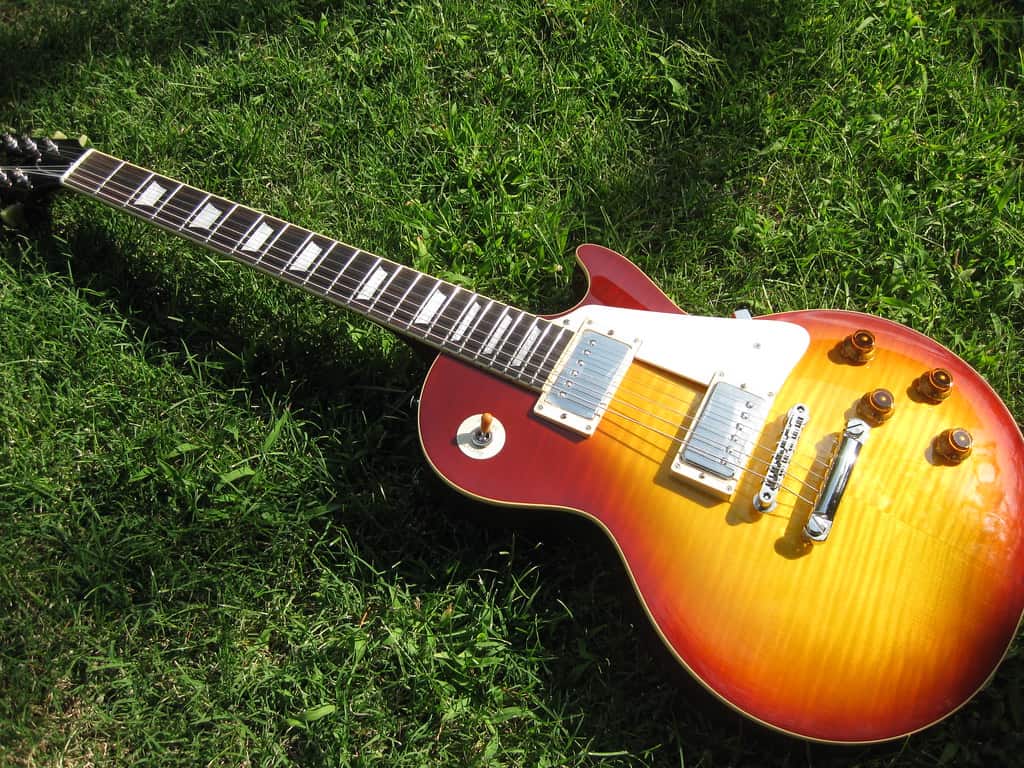There’s this age-old idea that the more an instrument is played through the years, the better it sounds.
This not only applies to guitars, but to many other instruments as well. Mostly those made of wood, because of reasons I will discuss later.
I remember one time, a few years ago when I was trying to learn the cello, I read somewhere online that someone recommended leaving your cello on a stand in a noisy room or in a place where you usually listen to music.
The motivation for this was that the instrument will resonate with the vibrations from the sound, helping to break it in, such as what would happen if you played it.
I think probably that was a bit too much optimistic about the effects that sound can have on a cello.
However, when researching this article, I found out that there are some possible tonal benefits gained from breaking in your guitar.
The short answer is the following:
There is a strong argument many manufacturers make about how breaking a guitar in will improve its tone. The vibrations from the extensive play will settle the fibers on the wood, making it stiffer, more stable, and resonant. This will likely improve sustain and define the character of the instrument.
If you have time for a deeper dive into this topic, in this article I will lay out all of the factors that could justify a better sound from a broken-in guitar.
Are you ready to get started?
Let’s go!
Is it the guitar or is it you?
To begin with, and to tackle the most obvious reason: It is probably you the one that’s improving and not your guitar.
You see, as many players swear by, tone is in the fingers, and the more you play the better your tone will be.
It is very likely that if you shared most of your artistic journey with the same instrument, over a reasonable amount of time (years), you might convince yourself that the guitar has grown sonically along the way.
If that’s the case, it is very likely that a lot of that improvement comes from you.
Your technique would surely have improved, and you will probably be playing different styles of music, much more fluidly.
Most of all, you will likely have upgraded the rest of your rig, such as your amp and pedals, and let me tell you, in my opinion, an amp makes up for 60% (if not more) of your tone.
So, is it possible that your guitar got better by resonating through the years? It is, but it’s also very likely that a considerable portion of that progress is yours, and yours only.
Guitar materials that could benefit from being played in
Now taking the human part out of the loop, there’s evidence that backs that some of the materials comprising your instrument might benefit from vibrating away day after day.
Even the interaction between different parts could slowly resonate in place. Think of a tight neck pocket, or how 2 pieces glued together could form a firmer bond thanks to the rhythmic movement.
Don’t quote me on that last sentence, since I’m not an engineer nor a luthier, that’s just common sense.
Experts, with a more scientific approach than mine, claim in line with my intuition, that vibrations help settle the fibers in the wood making it become stiffer, more stable, and more resonant, improving tone and sustain.
Digressing from woods, even strings and their sound are clearly influenced by how much you play them. I personally hate that metallic bright tone of a new set, but many people love it.
Electronics are more likely to deteriorate with time, than with use. Magnets have a finite lifespan, for instance.
Other components such as frets will wear out with play not particularly improving the tone of the instrument, but more likely harming its intonation.
I could, however, see some slight benefit from nuts and other inserted or glued components “falling into place”.
Time is also a big factor that we should not fail to mention as it will likely work in a similar manner, or in conjunction with vibration in the breaking in of an instrument.
Yet why vintage guitars are said to sound better is beyond the scope of this article.
How much of that breaking in is playing, how much of it is just time and wood maturation, and how much of it is player skills improving, that’s an equation I will not risk defining.
But probably it all has an influence on the character of an instrument.
Changes in the rest of your setup that improve your sound
I briefly mentioned before that the rest of your setup could be what tricks you into perceiving that your guitar has improved with the years.
This is not a small deal unless the memory of the sound that electric guitar produced was crafted while playing it acoustically, unplugged.
Leaving that exception out of the matter, factors such as string gauge, the volume of your amp, your actual amp and pedals, the setup you use to record it, the recording software, and many unnumbered others could trick your perception of the actual instrument’s tone.
Isolating the actual tone of a guitar to analyze it is no easy task, and much more complicated it is doing so with a past version of itself.
Recordings, as I brought up, could be an interesting benchmark for an instrument at different points of its life.
It would be an interesting experiment in the likes of those where people take a picture of themselves every day for years on end.
I have not come across anybody that crazy yet, but hey, if that’s you, please let me know what are your findings, and please respect the scientific method and control every possible variable.
Conclusion
Whether it is you, the guitar, or your rig, playing will only have a positive impact on how you sound. Period.
I would recommend you don’t overthink it and just let it happen, it’s not that a week of intensive play will make a noticeable difference on your overall sound.
It takes the water drop years to carve a path on stone.
And on that proverbial note, I consider this topic closed and published.

Hello there, my name is Ramiro and I’ve been playing guitar for almost 20 years. I’m obsessed with everything gear-related and I thought it might be worth sharing it. From guitars, pedals, amps, and synths to studio gear and production tips, I hope you find what I post here useful, and I’ll try my best to keep it entertaining also.





